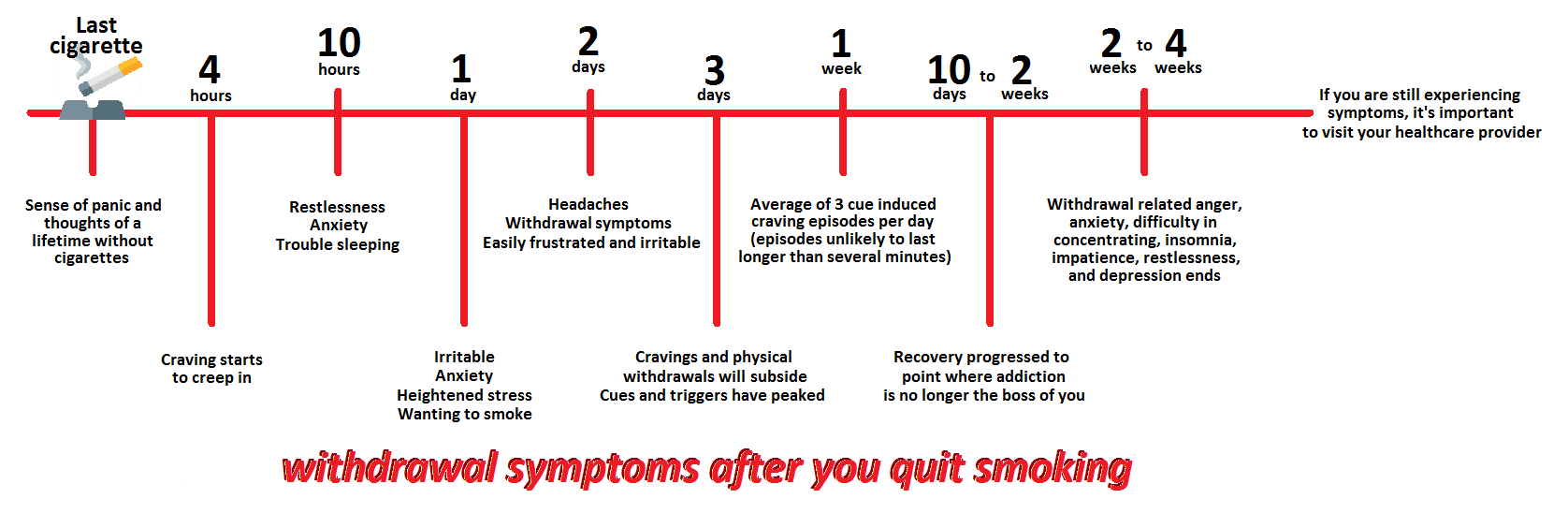Many people want to smoke again after they have quit. Smoking is part of your everyday routine. Smoking is also an addiction. Cravings happen as your body gets used to not having nicotine anymore. You might get a craving whenever your brain notices you are low in nicotine. Cravings can also be related to your routines or your memories of smoking. These cravings might happen when you see or smell others smoke, from your daily habits such as your morning coffee or with other cues such as stress.
Physical cravings are also called nicotine withdrawal. When you stop smoking, you might feel nicotine withdrawal that makes you feel physical cravings for a cigarette. This might feel like anxiety, depression, restlessness, headaches or hunger. If you have nicotine withdrawal, smoking can be relaxing because it will help take away these feelings. But, as your body gets used to not smoking, many good things happen. For example, you will be able to smell and taste better, you will be able to breathe easier and you will have better circulation. But as your body gets rid of the nicotine and begins to recover, some of the symptoms can feel unpleasant.
Symptoms of nicotine withdrawal include:

The good news is that nicotine withdrawal symptoms will go away! This part of quitting is different for everyone, but it doesn't last long- usually only 1 to 2 weeks. Cravings that happen because of routines or memories of smoking may last longer. Read about stress which can be another reasons you may have the urge to smoke. Talk to your healthcare provider about using nicotine replacement therapy such as the patch or medications that can help reduce these symptoms.

Here are some ways to deal with cravings:
- Cravings are very difficult, but they pass after several minutes.
- Cravings are short, delay the urge to smoke until it passes.
- Cravings can be so strong that it is difficult to think of anything but smoking, so plan ahead. Think of times in your life where you know you will have cravings, and plan for how you will deal with them.
- Do anything that keeps your mind and body busy to distract yourself when you have a craving. Some ideas include: drinking a glass of water, playing a computer game, going for a walk, calling a friend, taking a shower, or doing a puzzle.
- If you are somewhere and you find it very difficult not to smoke, such as being at a party or in a car with someone who is smoking, leave the place and situation.
- Remind yourself of all of the reasons why you have decided to reduce or quit smoking. Try writing these reasons down on a piece of paper that you can read when you are having a craving.
- Focus on positive thoughts. You're trying your best, so do not be hard on yourself for having a craving. Remember that cravings are a natural part of quitting or reducing smoking.
For those who are looking for resources, take a look at our self-help section.